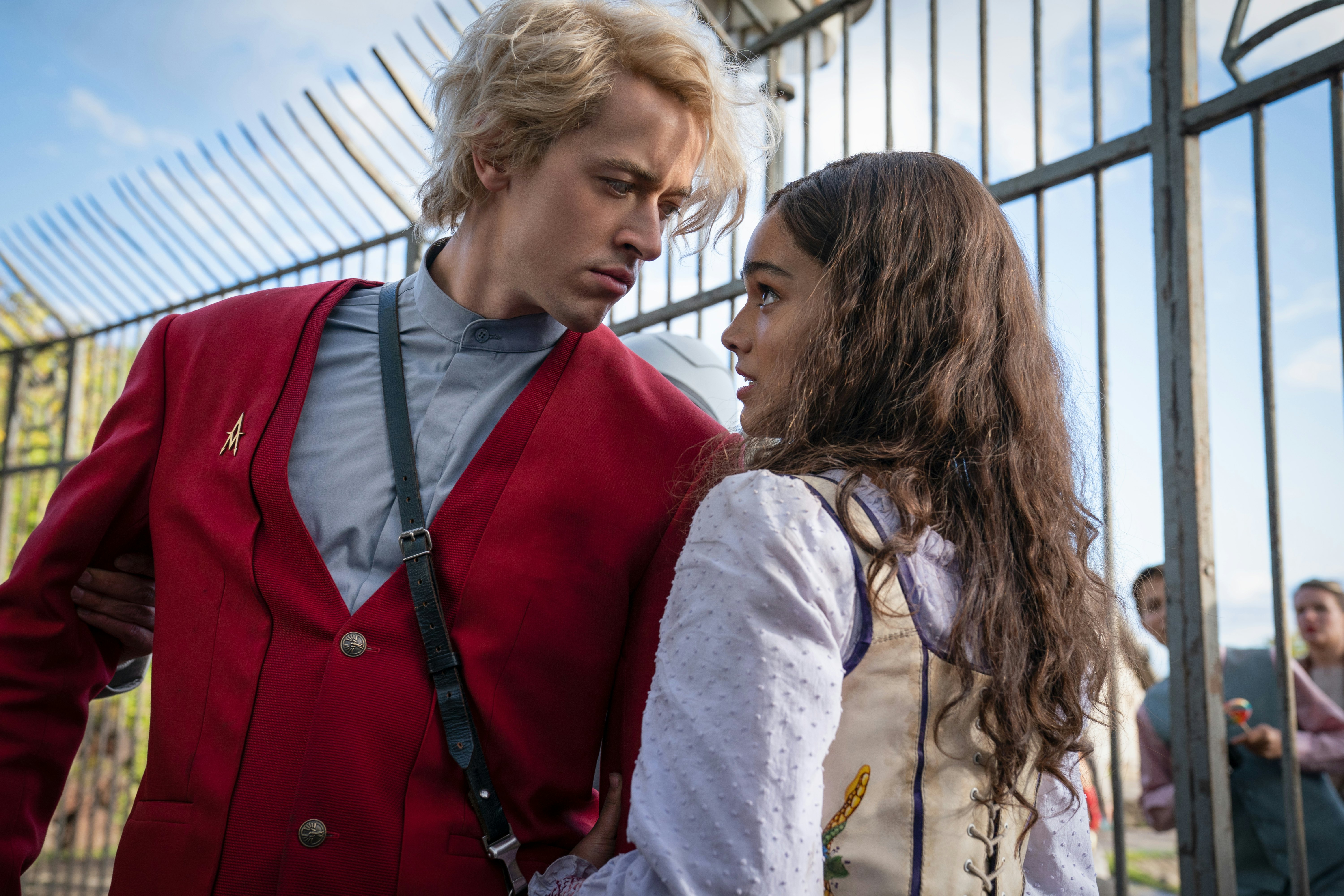
The Hunger Games: A Ballad of Songbirds and Snakes has a far too clunky and long name. But it’s a name that is necessary for that coveted brand recognition, one of the few lifelines for any major release in an IP-saturated movie landscape. And yet, funnily enough, too clunky, too long, and too obviously a bid to bring back a major IP is the perfect way to describe A Ballad of Songbirds and Snakes.
Based on the novel by Suzanne Collins, A Ballad of Songbirds and Snakes is a textbook example of a prequel that struggles to justify its existence. All of the elements that made the Hunger Games franchise a success are there — the dark political metaphors, the horrifying dystopian premise, the beautiful young actors in beautiful gowns who make the whole bitter pill easier to swallow — but Songbirds and Snakes feels simply like a rehash of what made the original films great, just in a different shade. It doesn’t do anything wrong, per se, but neither does it make enough of an impact to lure us back to the world of Panem nearly a decade after the last Hunger Games installment.
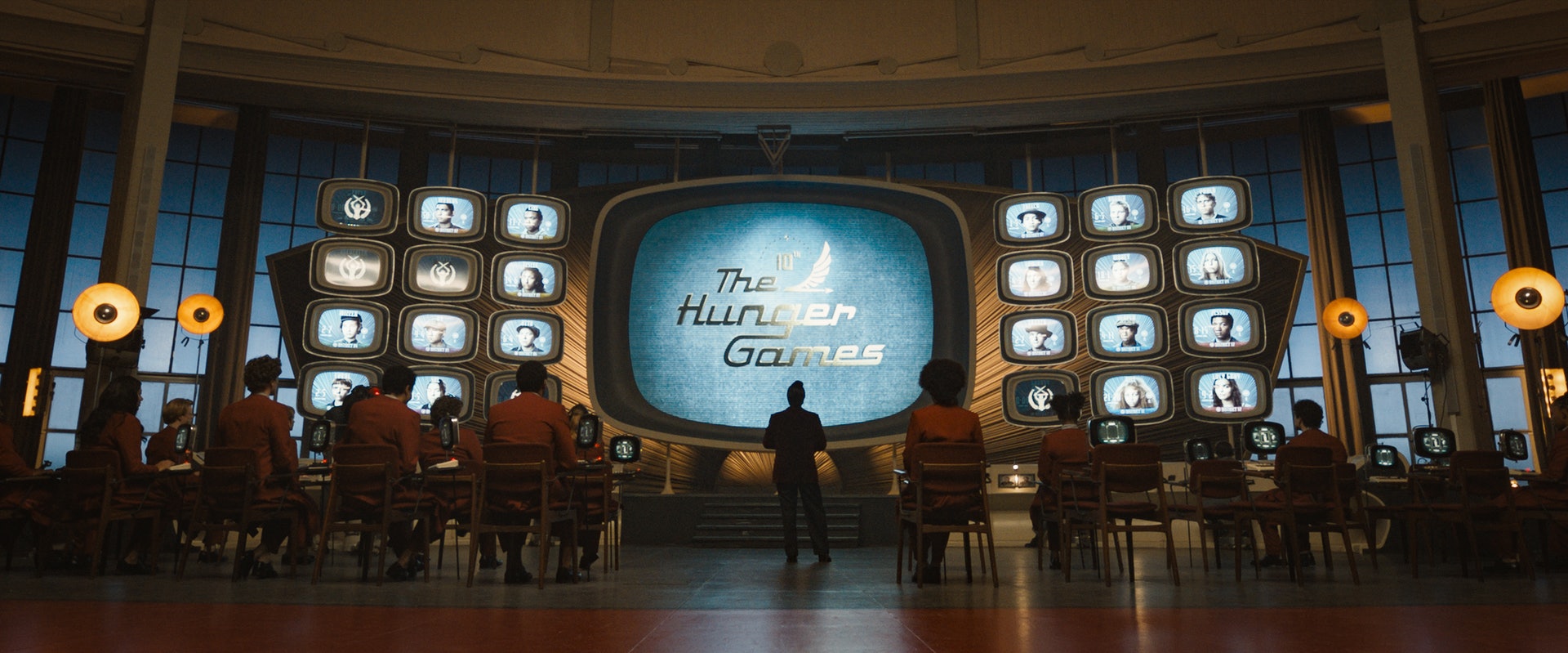
Set 64 years before the events of the first Hunger Games movie, A Ballad of Songbirds and Snakes shows us the origins of Coriolanus Snow, the would-be tyrannical president who cruelly subjugates the Districts for years and ultimately meets his demise at the hands of Katniss Everdeen. But before he becomes a sinister Donald Sutherland, he’s an ambitious young teenager played by Tom Blyth. With a shock of blond hair and icy blue eyes that rarely betray his calculating mind, Corialanus makes for an unusual protagonist and one of the more compelling elements of A Ballad of Songbirds and Snakes.
Having witnessed the horrific end of the revolt against the Capitol, which saw his once-prominent family fall from grace, Coriolanus is desperate to bring his family back to their former glory. But his plan is put in jeopardy when he’s chosen to mentor one of the tributes for the 10th annual Hunger Games, still in its infancy and looking to innovate in cruel new ways. Eager to prove himself, Coriolanus jumps to give ideas about how to improve the Hunger Games. However, he doesn’t anticipate falling in love with Lucy Gray Baird (Rachel Zegler), the District 12 tribute he’s assigned to mentor. Lucy is a musician whose knack for performing shakes up the entire game — and Coriolanus’ worldview. When his affections for her lead him to manipulate the Games, he’s sent away from the Capitol as punishment, leading him to question his loyalty to Panem and what it stands for.
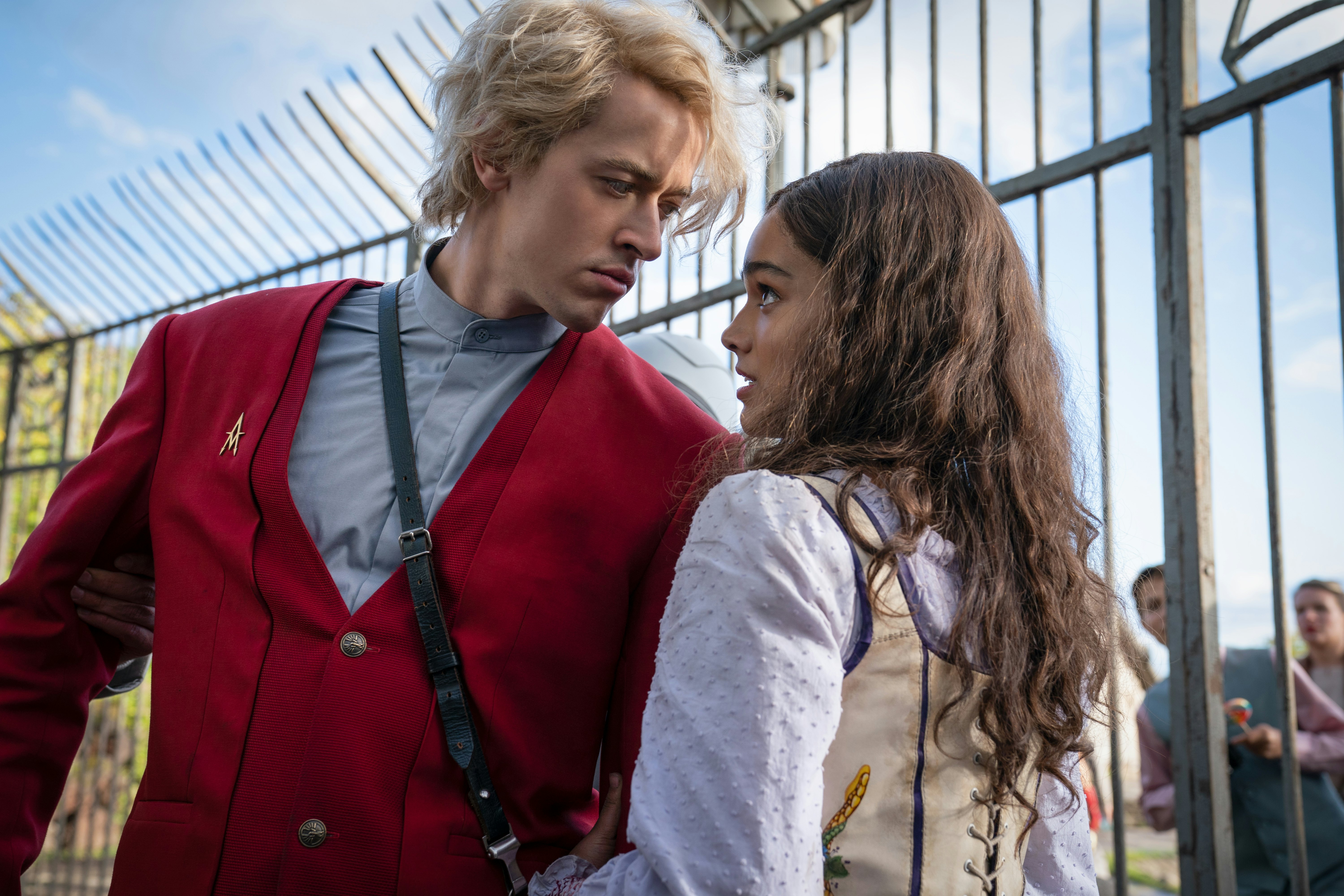
Hunger Games sequels director Francis Lawrence returns for A Ballad of Songbirds and Snakes and brings the same kind of stilted stylishness that characterized the last three movies he helmed for the franchise. The Capitol is still the hub of disgusting excess, and the Districts are still impoverished industrial or rural wastelands. But everything has more of a raw edge to it, as if Lawrence took the inherently disturbing elements of the Hunger Games and kicked them up a few notches. The pain of battle is still fresh, and the painted faces and silk dresses that the Capitol residents wear only barely cover their wartime scars. The dystopia of Panem still feels new.
The adult cast of A Ballad of Songbirds and Snakes is especially good at conveying the frightening dissonance at the heart of the Hunger Games. Viola Davis plays head gamemaker Volumnia Gaul as part mad scientist, part bloodthirsty capitalist vampire. She’s a leering monster of the Capitol’s making who enjoys inflicting physical and psychological torment on anyone in her path. If she’s not threatening to chew up the scenery, she’s engaging in a battle for screen presence with Peter Dinklage, whose spiky, guilt-ridden Dean Highbottom, the creator of the Hunger Games, is basically an extension of his performance as Tyrion Lannister. But the surprising scene-stealer of the film is Jason Schwartzman as Lucretius “Lucky” Flickerman, the first host of the Hunger Games, who injects a healthy dose of ironic, self-aware humor — verging on camp — into the role of the primping TV personality.
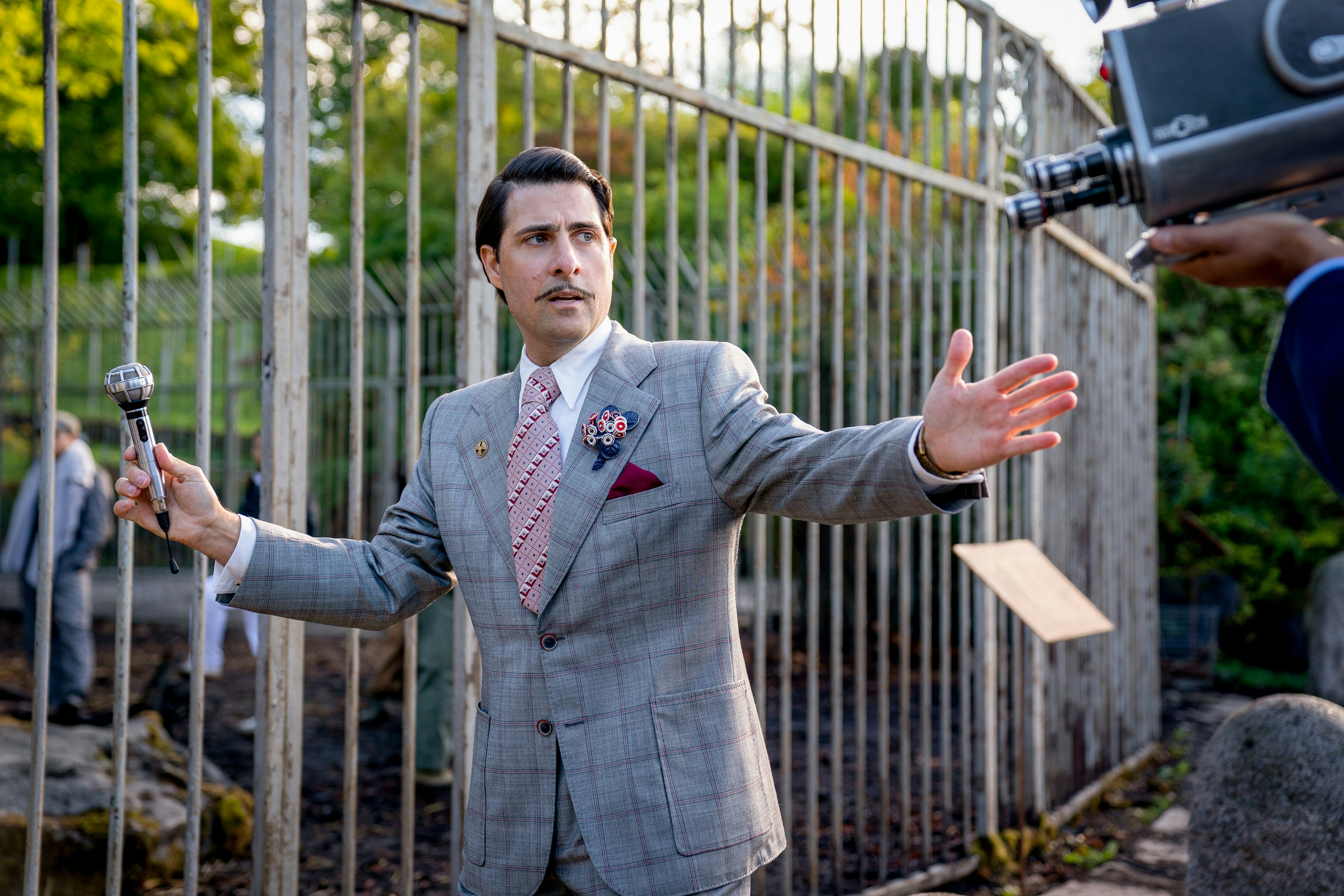
The rest of the younger cast feels frustratingly flat, but Blyth and Zegler are magnetic to watch together. Blyth gives a slippery performance as Coriolanus, one that’s so delicately verging on sympathetic that it dares you to empathize with him, while Zegler layers on a heavy Southern belle accent as the charming Lucy Gray. Though Zegler is all movie-star magic in the role, the film doesn’t quite know what to do with her, instead giving her far too many scenes of her performing full, four-minute songs to a doe-eyed Coriolanus. Yes, we know, the girl can sing.
A Ballad of Songbirds and Snakes capitalizes on their dynamic together through a genuinely thrilling first half, before it starts to fall apart with the introduction of a whole new storyline. The prequel tries to tackle both halves of the story with gusto, but ends up instead with two middling movies in one — making one wonder if it would’ve been improved by doing the one thing that tanked Mockingjay: splitting it into two parts.
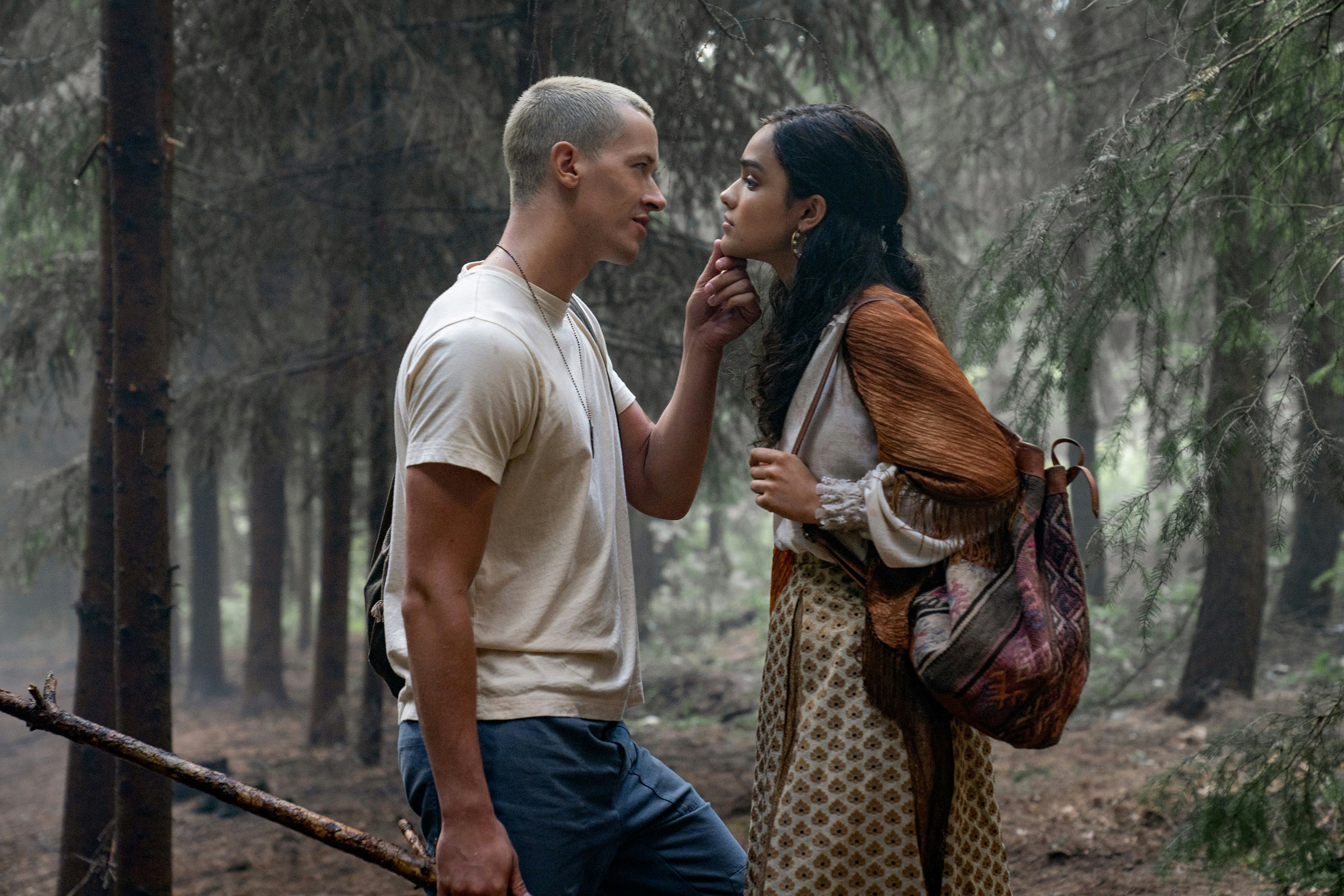
Ultimately, A Ballad of Songbirds and Snakes is worldbuilding with a question mark, as if daring us to ask “That’s it?” before wondering if we’ll find out in a sequel. It feels like a movie built on Easter eggs, and while its complex character drama is intriguing, it’s not strong enough to carry us through a story that quickly loses steam. The Hunger Games was built on a powerful premise, ushering in a wave of YA dystopia that quickly took over Hollywood. Unfortunately, it seems that its time has passed, and its song may indeed be over.







